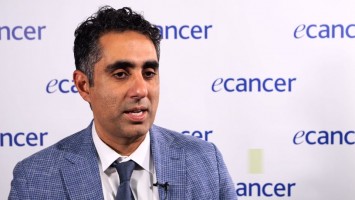WIN 2011, 6-8 July, 2011, Paris
The P-Medicine project: data sharing and integration for personalised medicine
Dr Simona Rossi – Swiss Institute for Bioinformatics, Lausanne, Switzerland
The P-Medicine project just started a few months ago in February this year; it’s a four year project funded by the European Union from the FP7, the ICT fund. It’s composed of twenty partners from Europe and one from Japan, the partners came from very different backgrounds, so from IT, from clinical and from bioinformatics, like myself. P-Medicine has a crucial aim: the aim to combine personalised medicine with VPH, so with virtual physiological human, so with simulation of the human body and how it answers to cancer and to therapy to understand more about therapy with the aim to personalise medicine.
For this project, SIB takes the leadership for the quality assurance for the evaluation and the validation of the tools and the resources of this project. Also you can imagine that to be able to evaluate and, first of all, to develop all these tools together in the P-Medicine infrastructure there will be a lot of tools and they need to be validated on several scenarios. So data but also scenarios that need to be viewed from a different point of view, from a different user point of view, so, from an informatics point of view, from the patient’s, from the clinicians, for example. And so also SIB is providing bioinformatics scenarios that will help in evaluating and validating several tools of P-Medicine and also P-Medicine entirely as a whole project. What is important in P-Medicine is the concept of the P5 that has been recently published by the European Institute of Oncology. P5 stands for the concept of the P4, published this year in Nature, about personalised medicine that is not only personalised but also is participatory, preventive and preventive because we need to pass from medicine that is reactive to a medicine that is proactive. P5 is the aim to add to these four Ps associated to medicine also a fifth P, that is psychology because one of the partners of P-Medicine is also taking the leadership of, taking care of all the aspects of the psychology of the patient. So, for us, the personalised medicine is not only personalised treatment but it’s also personalised medicine because it really takes care of the patients, of course, as much as we can as really part of the decision making process. We have a complete work package in the project that is called patient empowerment.








